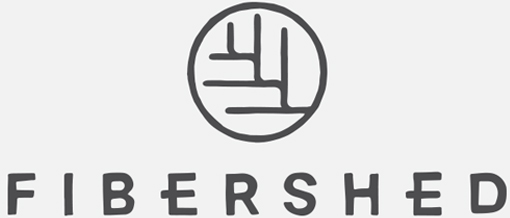Written by Sasha Wirth and photographed by Noelle Gaberman
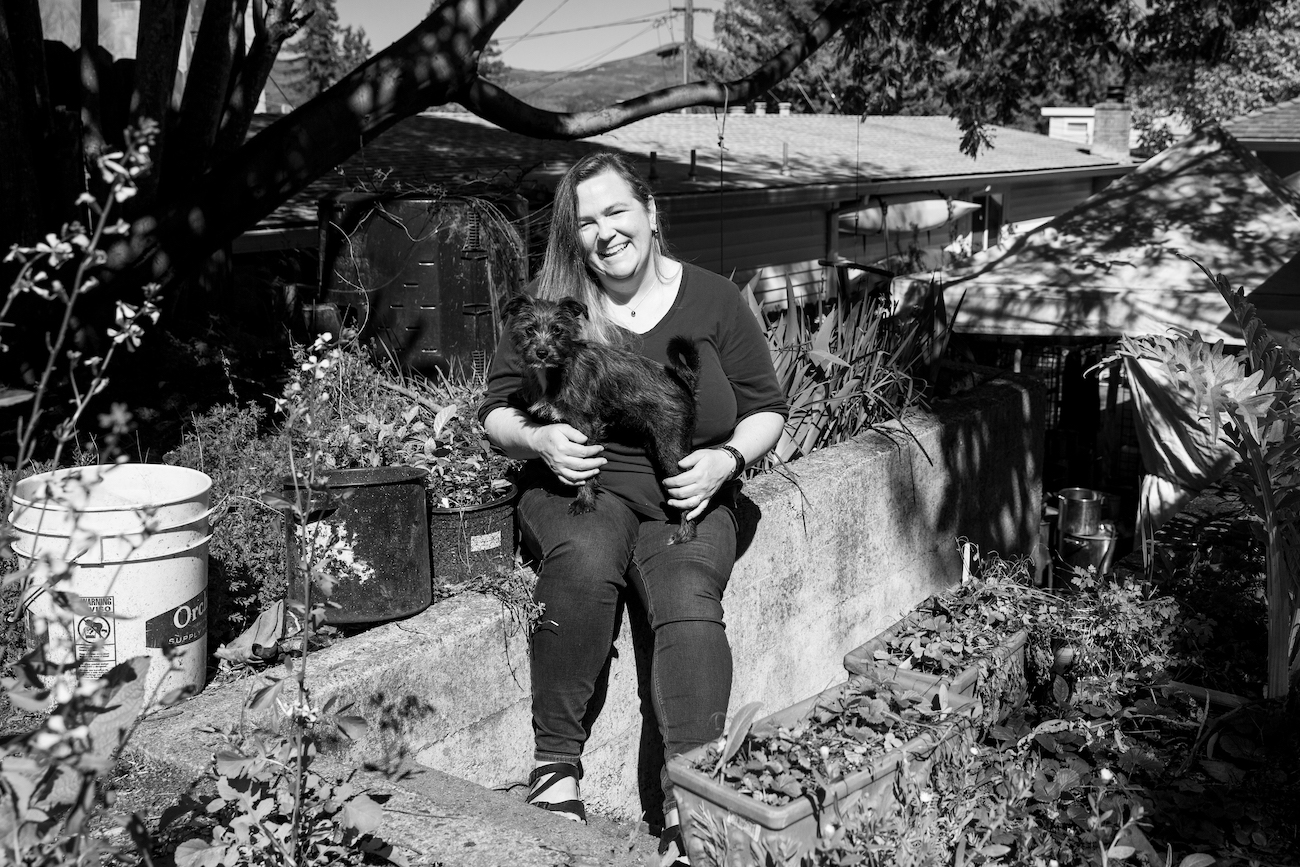
While it is common for a sheep to be called mild, helpless, gentle, or wooly-minded, Lincoln wasn’t like the rest of the flock. Lincoln was “a sincere sheep,” wrote his owner. And it was this humble and candid description that stayed with Brooke Sinnes for a long time, eventually inspiring her passion and shaping her business.
Sinnes was participating in a fiber spinning class at a fiber studio in Kensington, CA in 2002 when a classmate mentioned a fiber program she was part of. It was a unique take on a traditional community-supported model. In return for providing monthly financial support for a specific sheep – the aforementioned Lincoln – she received monthly missives on his life and, after shearing season, his wool.
“It was like a CSA for fiber. We learned about where Lincoln was roaming, what he was eating, and, of course, what his temperament was like,” laughs Sinnes. “And then, at shearing time, the woman brought his fleece to class. We unrolled it like a rug on the table, and everyone stood around in wonder, soaking in the scent of lanolin and touching the locks. Suddenly someone quipped, ‘The farmer was right. Lincoln sure is a sincere sheep.’ And it was such a sweet and funny moment that it stuck with me.”
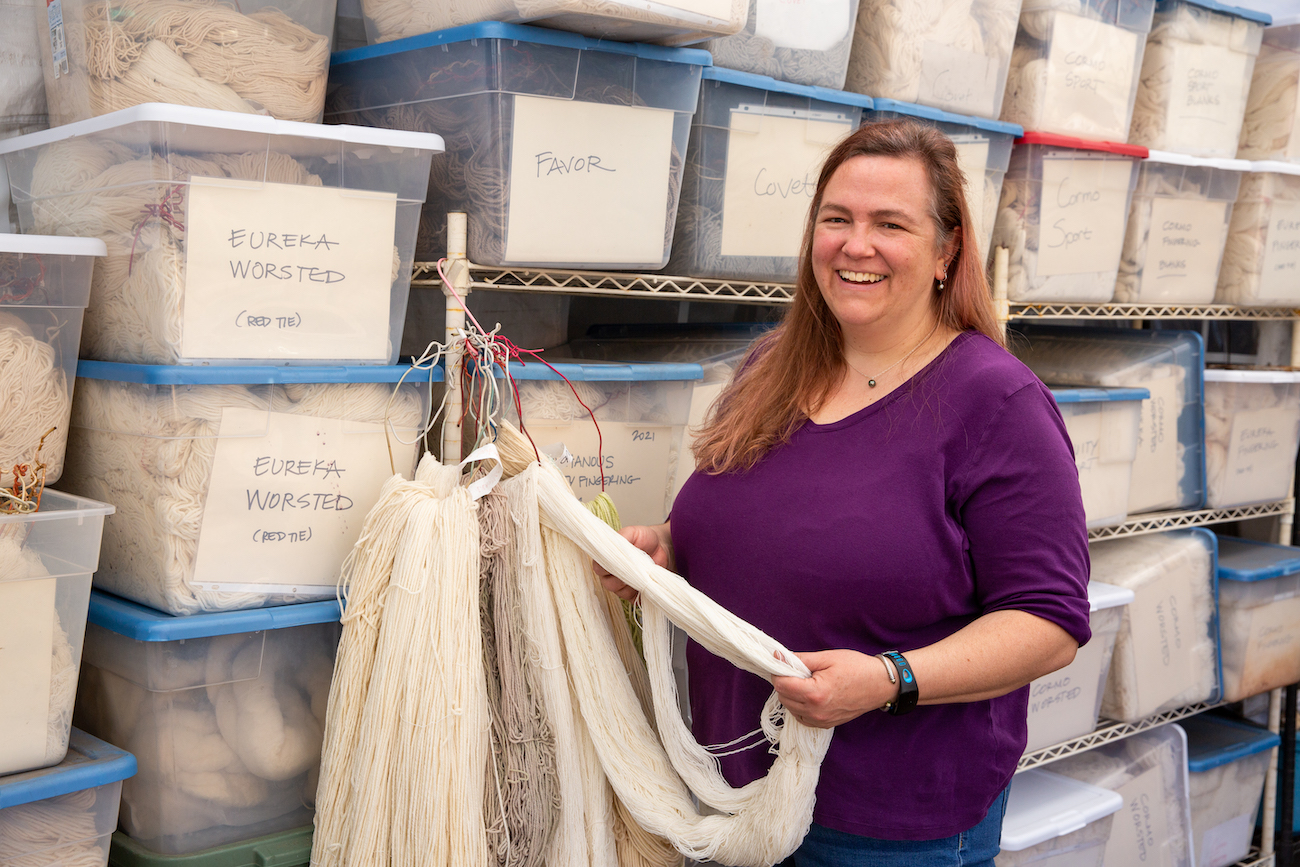
Around this time, the Slow Food Movement and concept of terroir were entering into greater consciousness, and Sinnes was drawn to the connections between product and place, diversity and conservation, and value and time. But it was a conversation with another classmate that opened her eyes to the possibility of applying these same philosophies to fiber.
“My classmate Connie was a veterinarian specializing in radiology. She would visit the local farms to check on pregnant ewes and mentioned that most of their wool was being composted. The price for American wool was extremely low at the time – maybe 20 or 30 cents a pound – and most of it was being sent into something called a ‘wool pool.’ Smaller farms merged their fiber with larger farms, and all the wool was sorted based on color and type to be sold as a larger lot. Because the price for wool was so low the cost to ship the wool to the wool pool was more than what the farmers were receiving for their wool. Therefore, most farms were either stockpiling, composting, or sending their wool to the dump. It was disheartening to hear,” she says.
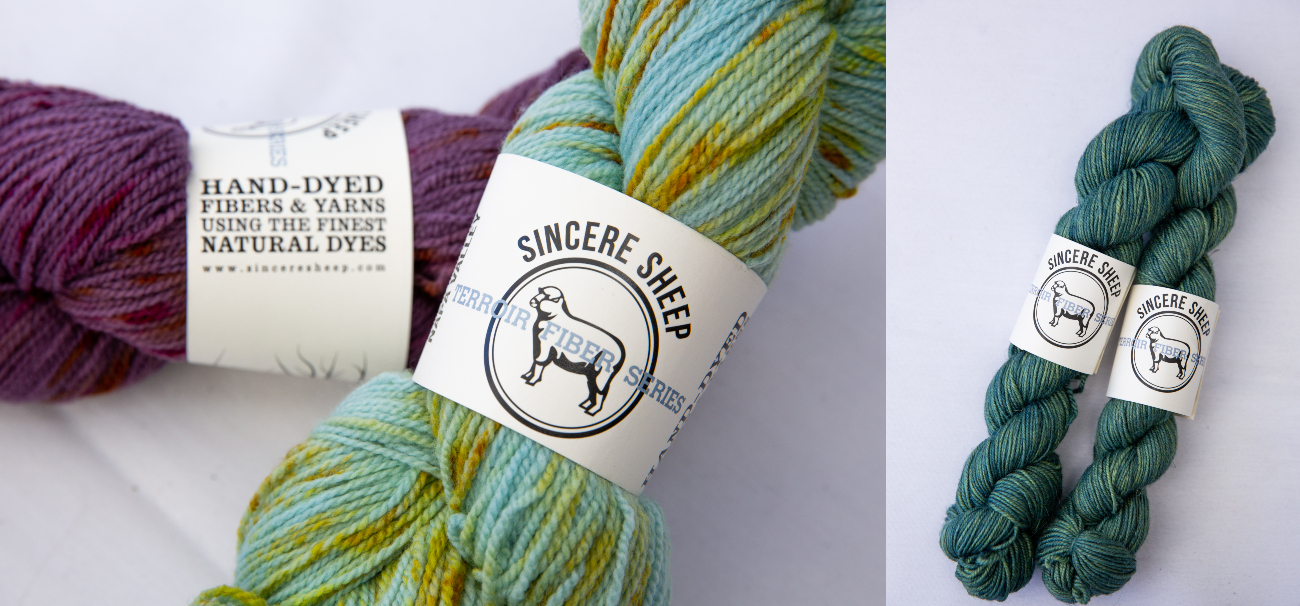
Sinnes recognized that the slow ethos she embraced around food also had a practical application for the wool industry, which was fast disappearing across the American landscape. “Knowing where things come from. Having a strong sense of place. Celebrating differences and uniqueness. Paying fair prices for products. I saw that all of these concepts applied to wool as well. And just as the growing conditions on farms affect the food grown year by year, it’s the same for wool. Some years it’s lighter, or coarser, or softer. It is incredible to experience.”
And, perhaps most poignantly, it could have all been lost if Sinnes and others like her did not reimagine how to take back the fibershed. It was 2003, and sales of merino wool were skyrocketing. “It was the cult of soft,” she explains. “Everyone wanted wool that could be worn next to the skin, but the mainstream ways of making merino blends were highly processed and sourced from all over the world. At that point, 80 percent of the textile industry in America had been lost. I wanted a closed-loop system – to only source wool from the United States and spin all the yarn here.”
Motivated by the earnest desire to support the struggling farmers and mills, she turned to the memory of one sheep who epitomized what she hoped to nurture in her endeavor: authenticity, honesty, and, most importantly, sincerity. And thus, Sincere Sheep was in business.
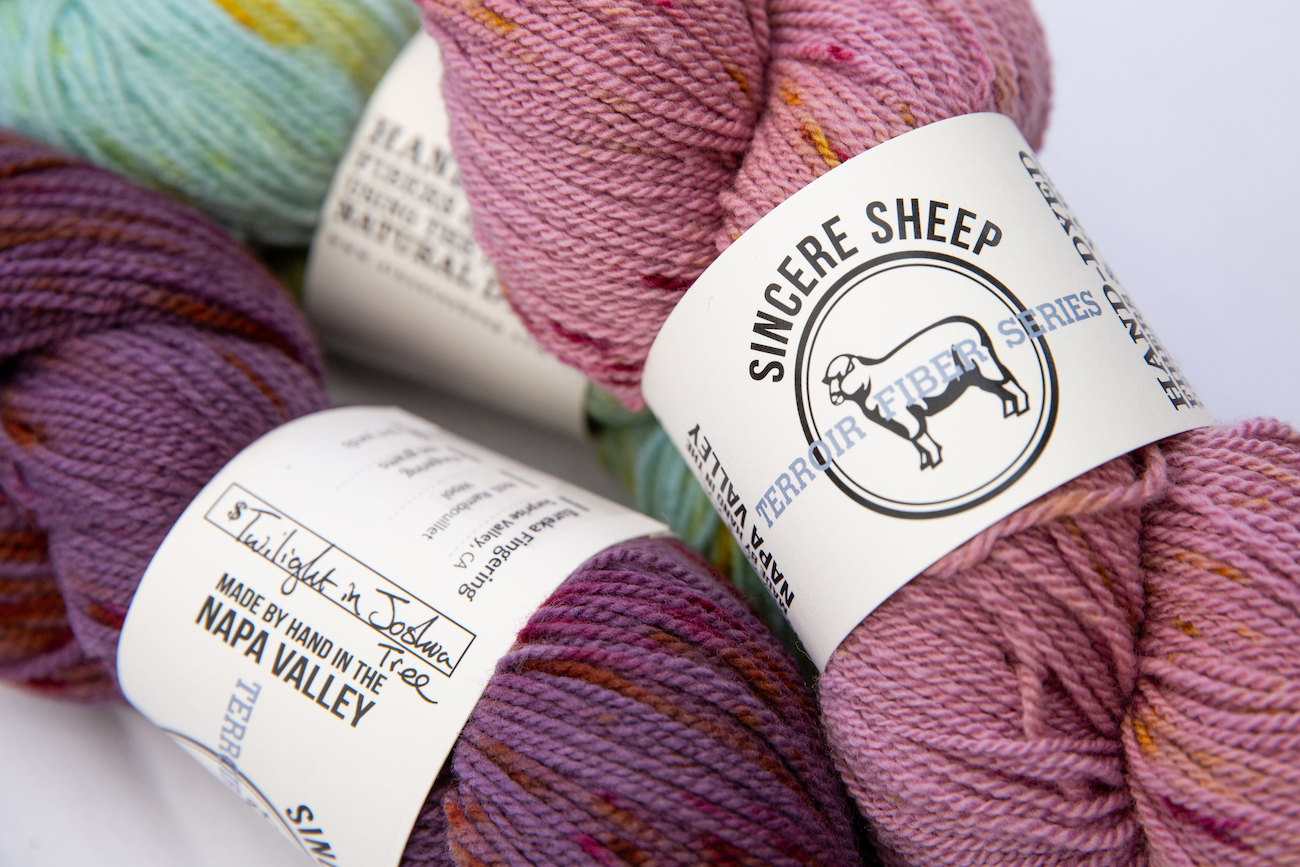
Based in Napa, Sinnes began to source fiber from local California farms. “One of our first deliveries of fiber came from a sheep named Buddha. We called him the comeback kid. He was a lawn-mower sheep – essentially a sheep kept as a pet, with the added bonus of mowing and maintaining a plot of land. His wool was beautiful and a wonderful example of how special small-batch fiber could be,” she reminisces.
Customers began to place specific requests for Buddha’s wool, and Sinnes saw how fiber could come to resemble a vintage wine. Over the span of a few years, the changes in fleece were noticeable, and knitters were anticipating and delighting in what each new shearing season would bring from their favorite sheep.
As demand grew, however, Sincere Sheep’s sourcing had to expand. Determined to only purchase domestically-produced fiber, Sinnes turned to the American mills that had managed to stay in business. But instead of ordering or demanding specific wool, she took another page from the wine business and purchased the ‘house yarn’ from each mill. By doing this, she has allowed the mills to excel at what they do best.
“I embrace their sweet spot,” she says matter-of-factly. “And this has made all the difference in obtaining the best quality wool while fostering strong, personal relationships. We are all passionate about local textiles and feel strongly that this should exist in the world. As it pertains to fiber, we speak a common language, and this creates a bond among all of us.”
Providing customers with a range of made-in-the-USA yarns – whether sourced from the farm down the road or another state over – has ensured the support of wool producers nationwide while also celebrating and preserving the country’s different breeds of sheep. To this day, Sincere Sheep still identifies the name of the ranch, location, and breed of the sheep when traceable. These sorts of details elevate the experience customers have when using their yarn to knit up a sweater or make a hat.
“Our breed-specific yarn is a customer favorite. Cormo wool, which was originally bred by crossing Merino and Corriedale sheep, is the most desired. It isn’t highly processed, so it has lovely natural variations, texture, and visual interest. Knitters just enjoy using it. It’s truly a friendly yarn – soft, elastic, and works up beautifully!” smiles Sinnes.
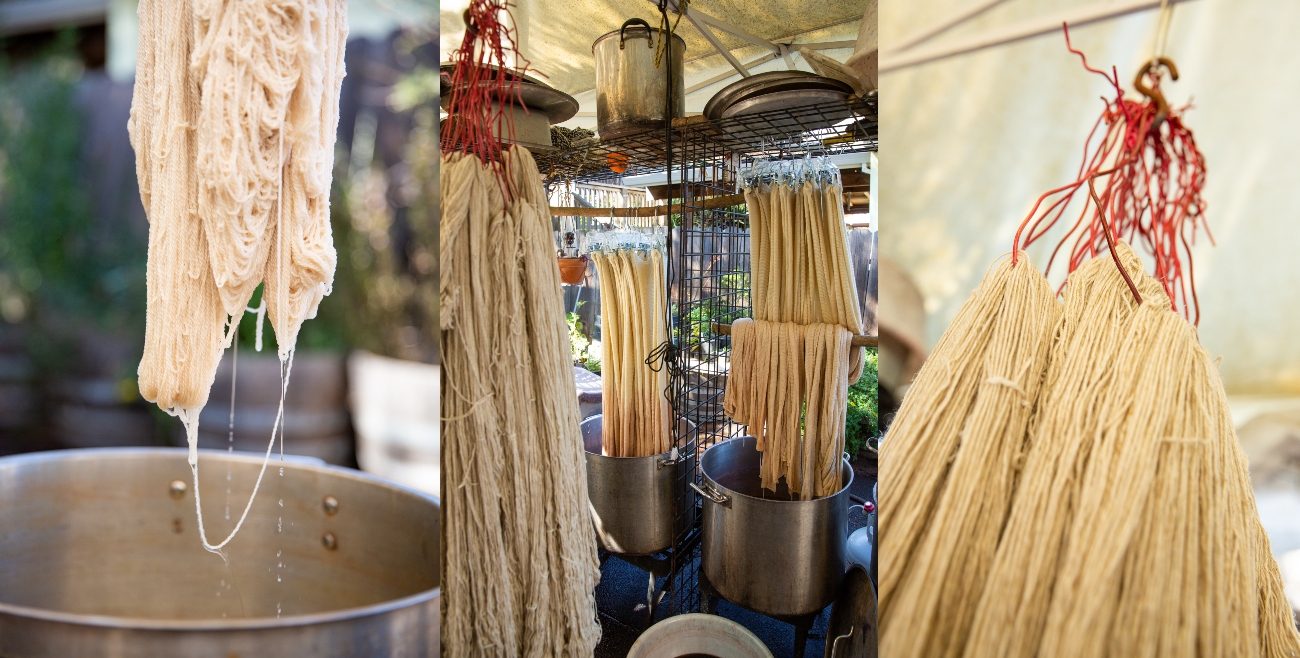
It is quickly evident that her ability to talk about yarn goes beyond the simple facts. Since she works so intimately with the farmers and mills and creates a portion of the end product herself, Sinnes’ knowledge and interest borders on that of a sommelier. Want wool that is “delicious to work with and wear?” A skein from Lani’s Lana is what she’ll recommend. Prefer a fiber that is “ideal for year-round wear and made of a unique blend?” Then Shaniko Wool Company’s silk and Belgian linen blend is the one for you.
But what makes each homegrown and homespun skein from Sincere Sheep special – whether it is sourced from local fiber artisans, small businesses, or larger mills – is that it is naturally dyed in-house by Sinnes and her team. From the sunny shade of marigolds to the sky blue of borage, Sinnes uses the extracts of plants (and the occasional insect shell) to create a mesmerizing offering of thoughtfully dyed wool and fiber.
“I’ve always been fundamentally interested in plants,” shares Sinnes, who holds a degree in Landscape Architecture. “For me, natural dying strikes the balance between the creative and technical aspects of landscape design. It’s what really appeals to me. This combination is my happy place.”
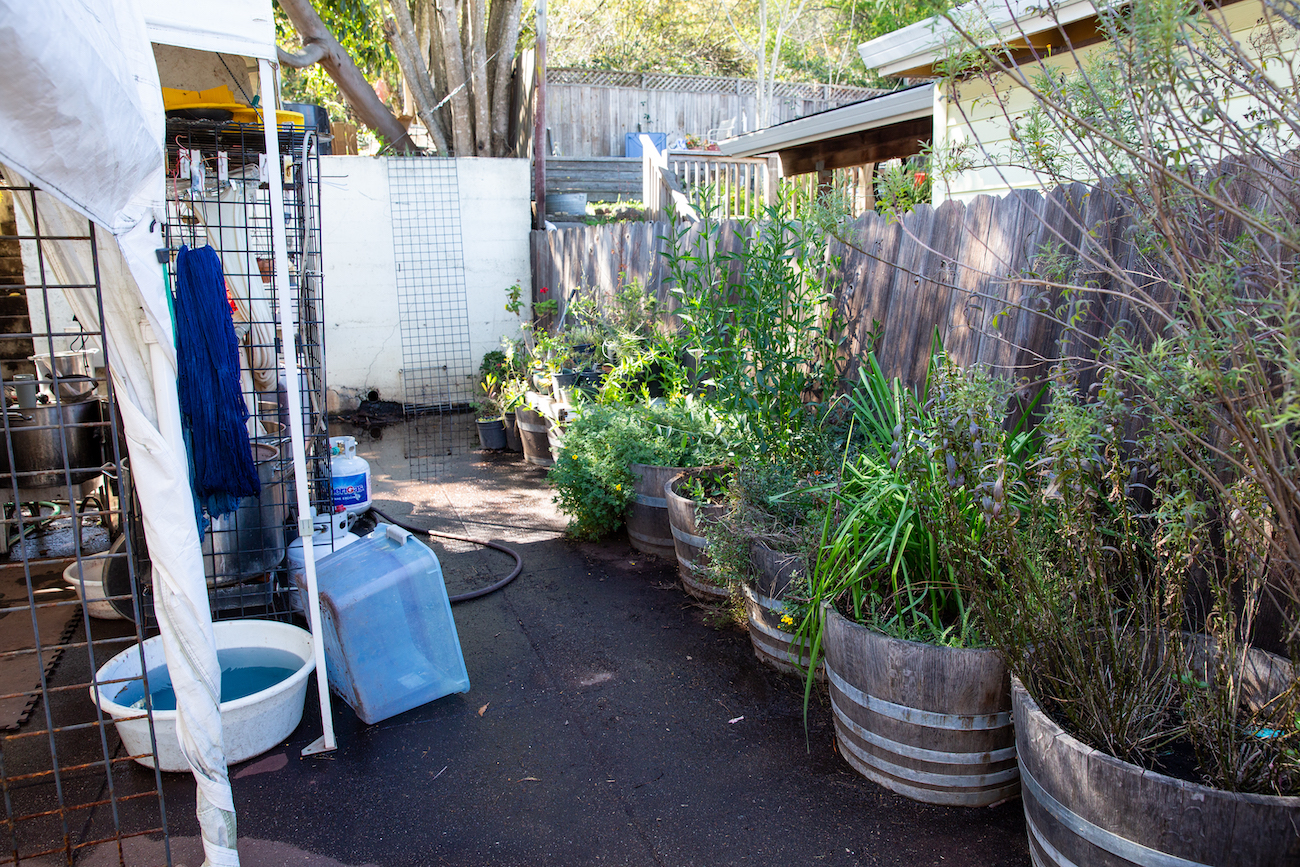
In her own garden, there are wine barrels overflowing with madder. Nearby, sulfur cosmos, chamomile, and borage mix with hopi sunflowers and a mimosa tree. There is Mexican tarragon, indigo, and a loquat tree. For the natural dyer, there is more than enough to be found for inspiration and experimentation. And that is the primary purpose of this dye garden – to offer up new ideas and provide the raw materials for the speckled effect that Sincere Sheep is becoming increasingly known for on a selection of its yarns. But Sinnes turns to sustainably sourced extracts from Kathy Huttori’s Botanical Colors in Washington when it comes to the main dyeing process.
“Using extracts helps us simplify and streamline the dye process,” she explains. “It allows us to create these gorgeous, deep shades and ensure the color lasts. And by layering, mixing, and using a variety of natural dyes, we can achieve an array of colors – from the calm and dreamy to the bold and rich.”

While extracts have helped reduce the physicality of the work, which can certainly strain a small team creating artisanal products, it is still labor-intensive and time-consuming. All steps happen simultaneously. Fiber arrives that needs to be washed to remove excess oils that can interfere with the dye process. What is already washed is soaking in steel pots for 24 hours with a mordant of alum, ensuring better color absorption. The rest of the wool is in different stages of being rinsed, dyed, dried, and wound.
“Even though the process is involved and very slow, it produces such value. I still enjoy it almost 20 years on,” remarks Sinnes. “And in turn, our customers can enjoy their yarn for a very long time. The color palette we are able to create with natural dyes is so timeless and wearable.”
She finds the bespoke nature of the work exciting, even with the challenge of not replicating color results exactly. Sinnes believes it has nudged her into a very intimate experience with the natural world. “There’s a connection between you and the environment and how you look at it. The changes of each season inform the colors that are available, which are unique and enchanting. And while the size of our business doesn’t give us the option of only using dyes made from raw materials I can grow or forage, the natural dye extracts we do use at Sincere Sheep still support farmers and revere local landscapes. They honor the history of the plants and how they have been used worldwide while also embracing the future of natural dying. They offer opportunity, and this keeps it interesting and meaningful.”
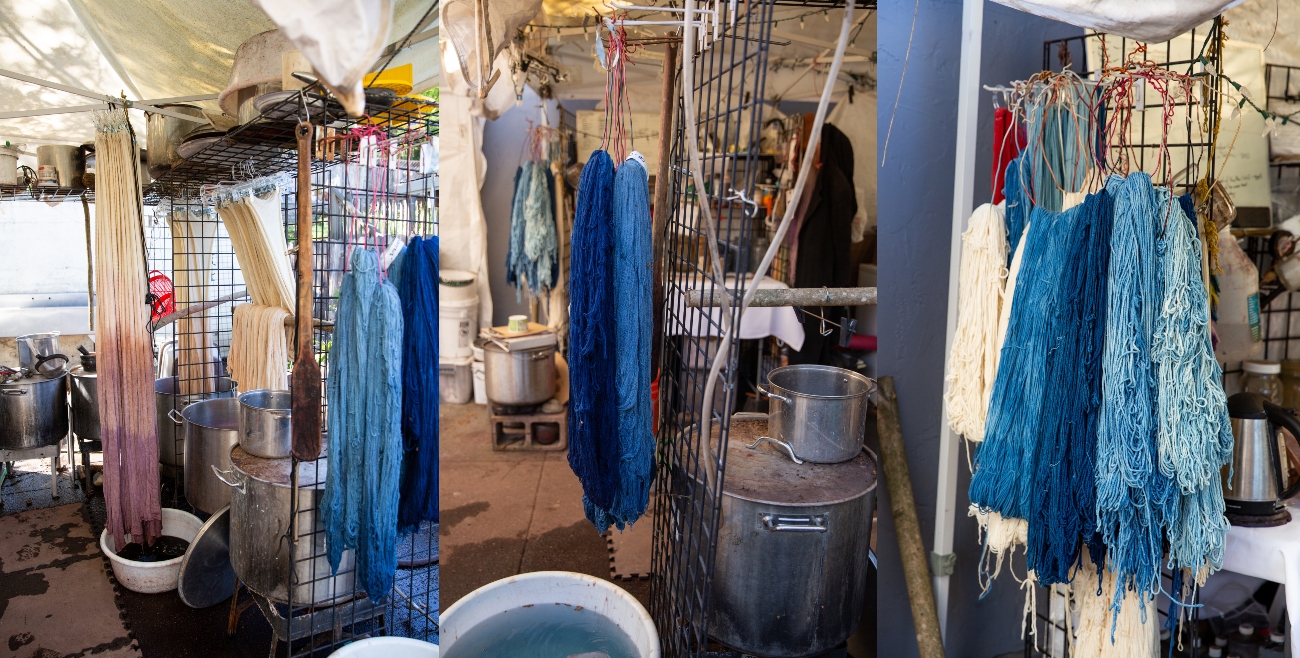
She acknowledges, however, that natural dying is water-intensive and that any steps to offset the effects on the environment are important. From reusing dye vats to keeping the mordant going until water needs to be exchanged, these simple actions are a few of the ways Sincere Sheep approaches sustainability.
The company has also started purchasing and promoting Climate Beneficial™ Wool from Northern California farms and wool producers. Through this Fibershed initiative, farmland is optimized for carbon sequestration via specific land management practices and conservation. The sheep that graze on this land become part of the effort to curb climate change, and their wool is a direct, tactile reflection of the efforts put into place. It is yet another manifestation of the closed-loop system Sinnes first envisioned when beginning her business and has given her the chance to collaborate with numerous Fibershed members (including Red Creek Farm, Ace n’ The Hole Ranch, Full Circle Wool, Wild Oat Hollow, and Alpacas of Marin) whose values mirror her own.
“We are an ecosystem, supporting one another and ensuring this important work can continue. We are passionate and committed, even though the economic reality for businesses like ours is very difficult,” she admits. But even here, she has opted to think creatively, remembering the impact of one sheep’s story on her. Coming full circle, Sincere Sheep now offers a Made Here! Yarn Club, which is Sinnes’ own spin on a Fiber CSA.
Each quarter, customers receive a box filled with exclusive small-batch yarn, a Ravelry pattern code from a featured designer, and custom-made items and goodies designed just for club members. The stories of the local producers, makers, and designers provide members with an enriching and personal experience that is absent when the yarn is randomly plucked off a shelf or ordered online.
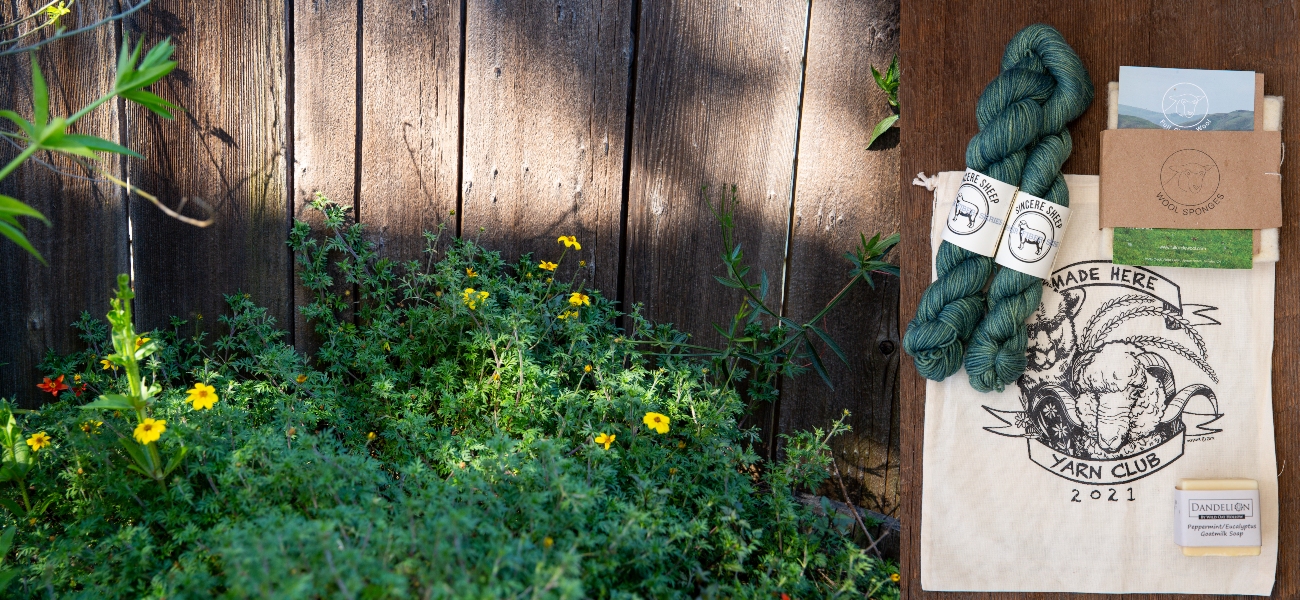
“The club is such fun! We have members all across the United States who are thrilled to receive specialty products not available in the mass market. This model gives us room to experiment with a wider range of dying techniques while showcasing other exceptional craft businesses. And we’re able to support the critical work of small farms and mills by committing to their products and services ahead of time. It’s a win-win for everyone involved,” says Sinnes proudly.
For the local and domestic fiber industry to survive, there is no better – or more enjoyable– way to enact positive change. Because, as Sinnes concludes humbly, “huge impact can start with a simple skein of yarn.”
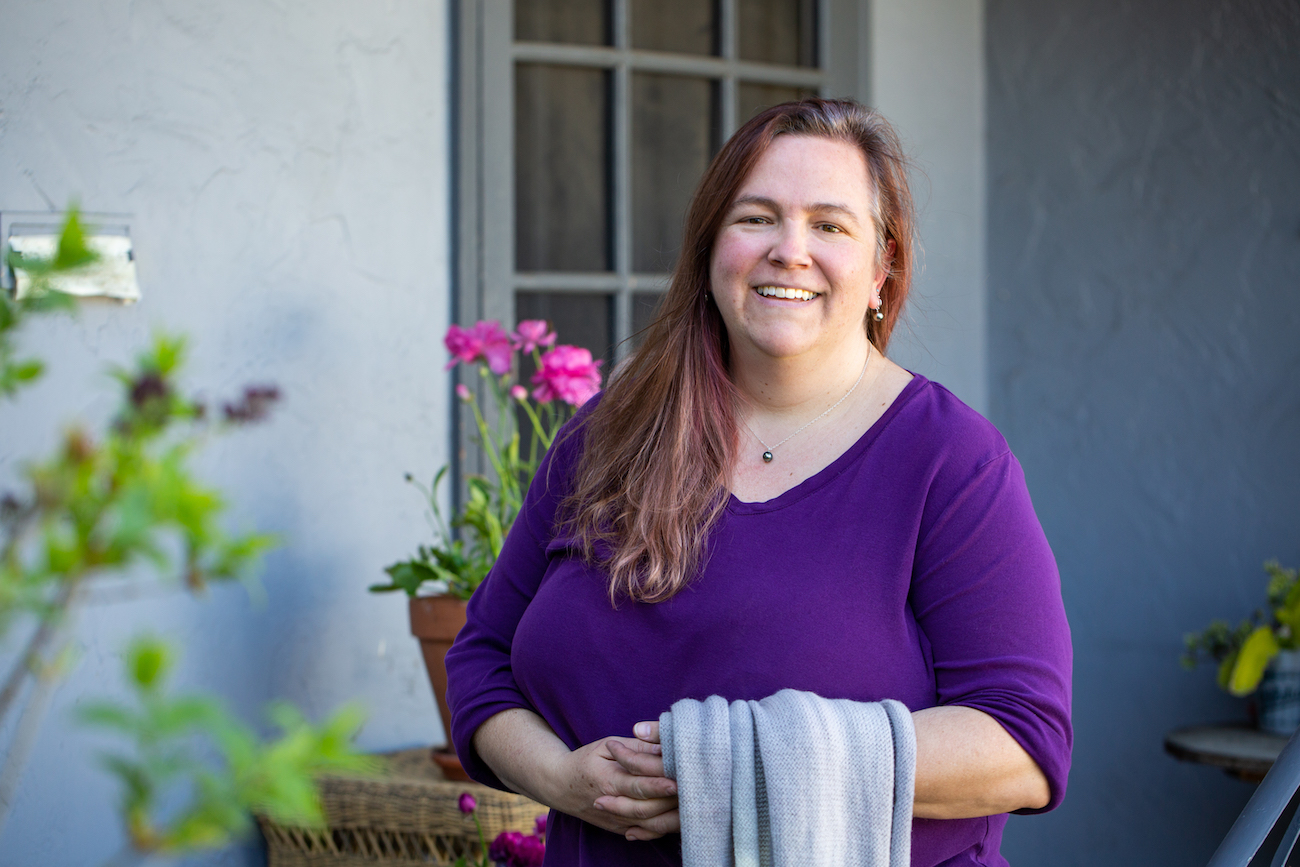
You can find more information on Sincere Sheep products and events on their website, sinceresheep.com.
